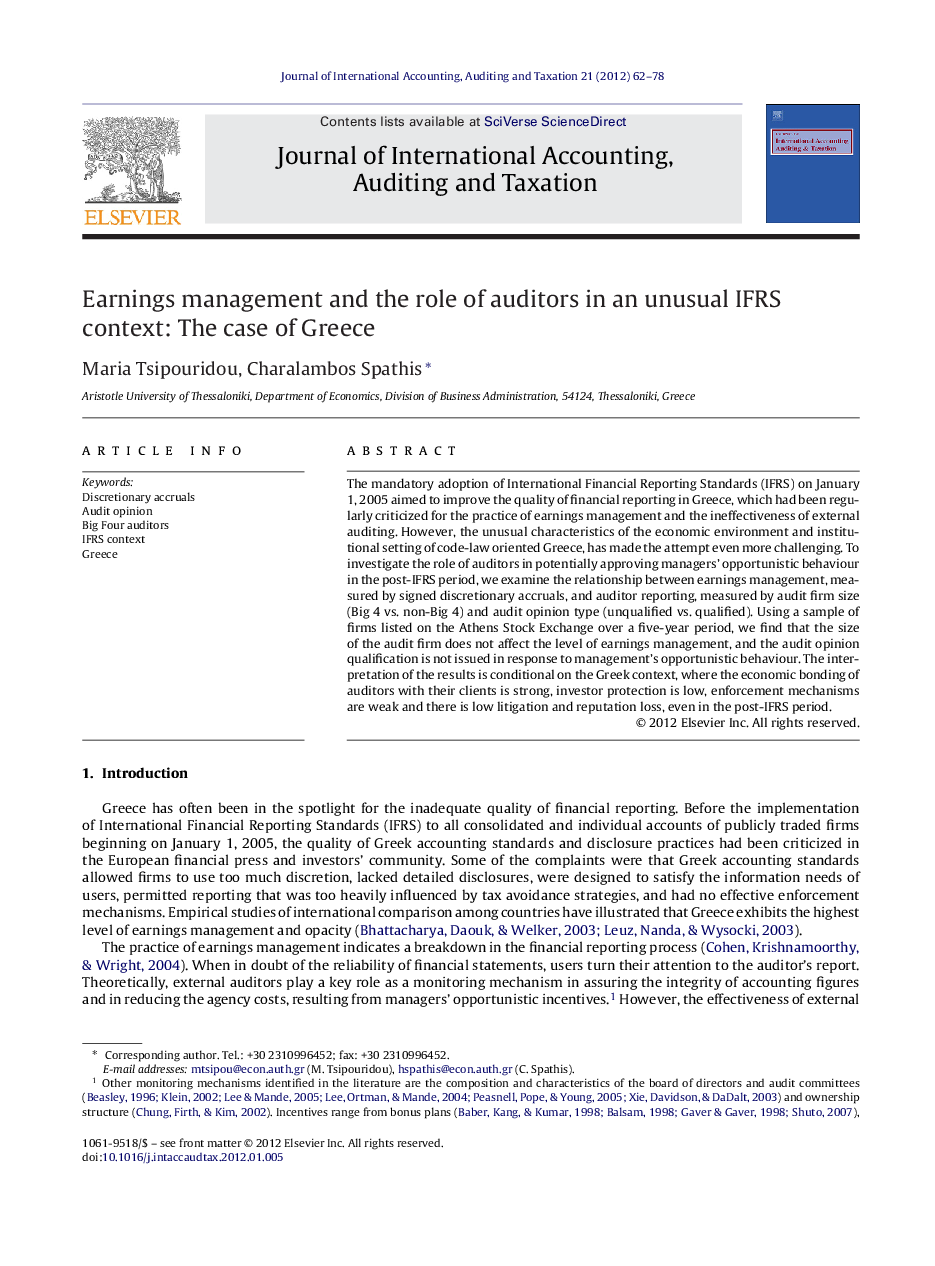| Article ID | Journal | Published Year | Pages | File Type |
|---|---|---|---|---|
| 1002041 | Journal of International Accounting, Auditing and Taxation | 2012 | 17 Pages |
The mandatory adoption of International Financial Reporting Standards (IFRS) on January 1, 2005 aimed to improve the quality of financial reporting in Greece, which had been regularly criticized for the practice of earnings management and the ineffectiveness of external auditing. However, the unusual characteristics of the economic environment and institutional setting of code-law oriented Greece, has made the attempt even more challenging. To investigate the role of auditors in potentially approving managers’ opportunistic behaviour in the post-IFRS period, we examine the relationship between earnings management, measured by signed discretionary accruals, and auditor reporting, measured by audit firm size (Big 4 vs. non-Big 4) and audit opinion type (unqualified vs. qualified). Using a sample of firms listed on the Athens Stock Exchange over a five-year period, we find that the size of the audit firm does not affect the level of earnings management, and the audit opinion qualification is not issued in response to management's opportunistic behaviour. The interpretation of the results is conditional on the Greek context, where the economic bonding of auditors with their clients is strong, investor protection is low, enforcement mechanisms are weak and there is low litigation and reputation loss, even in the post-IFRS period.
